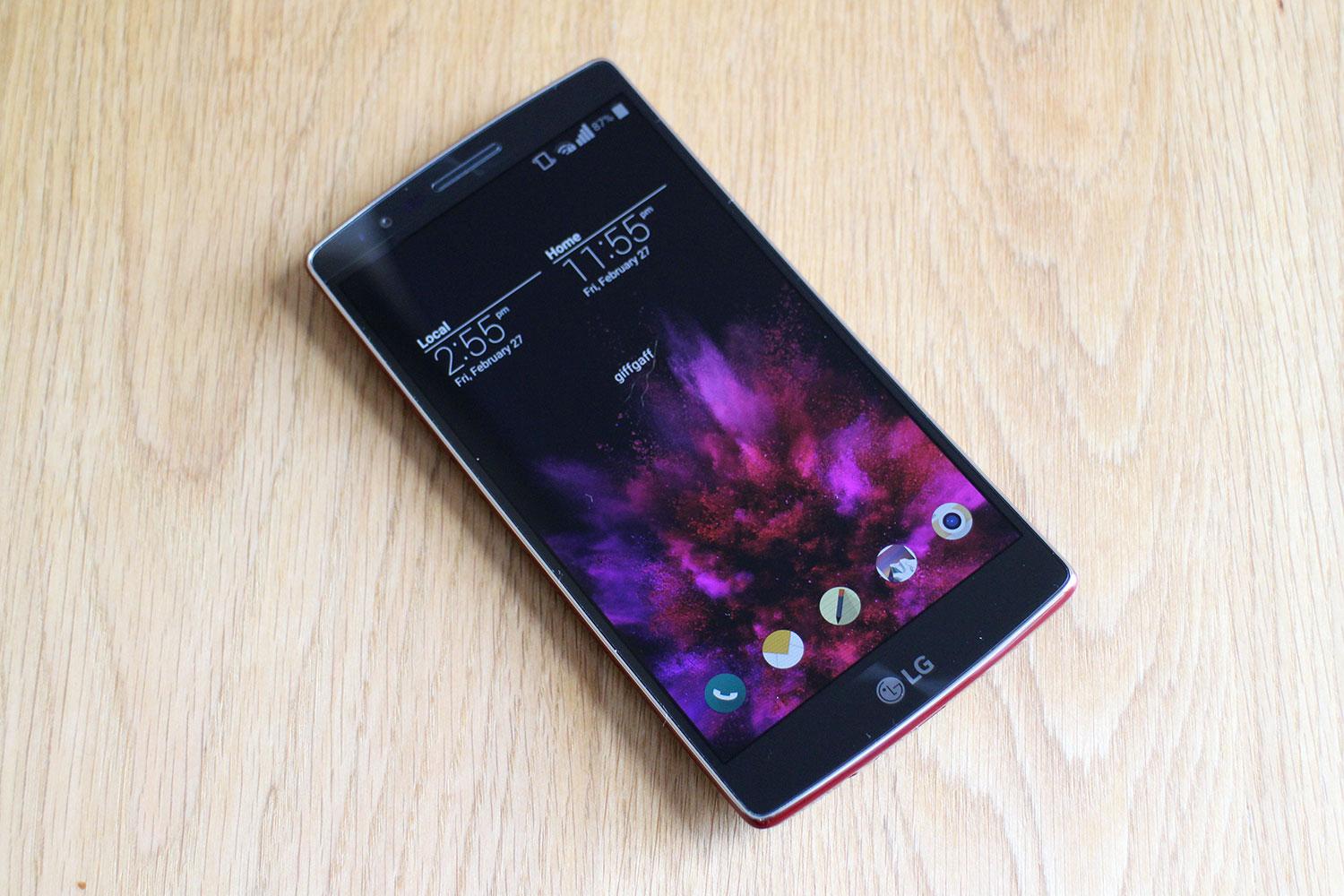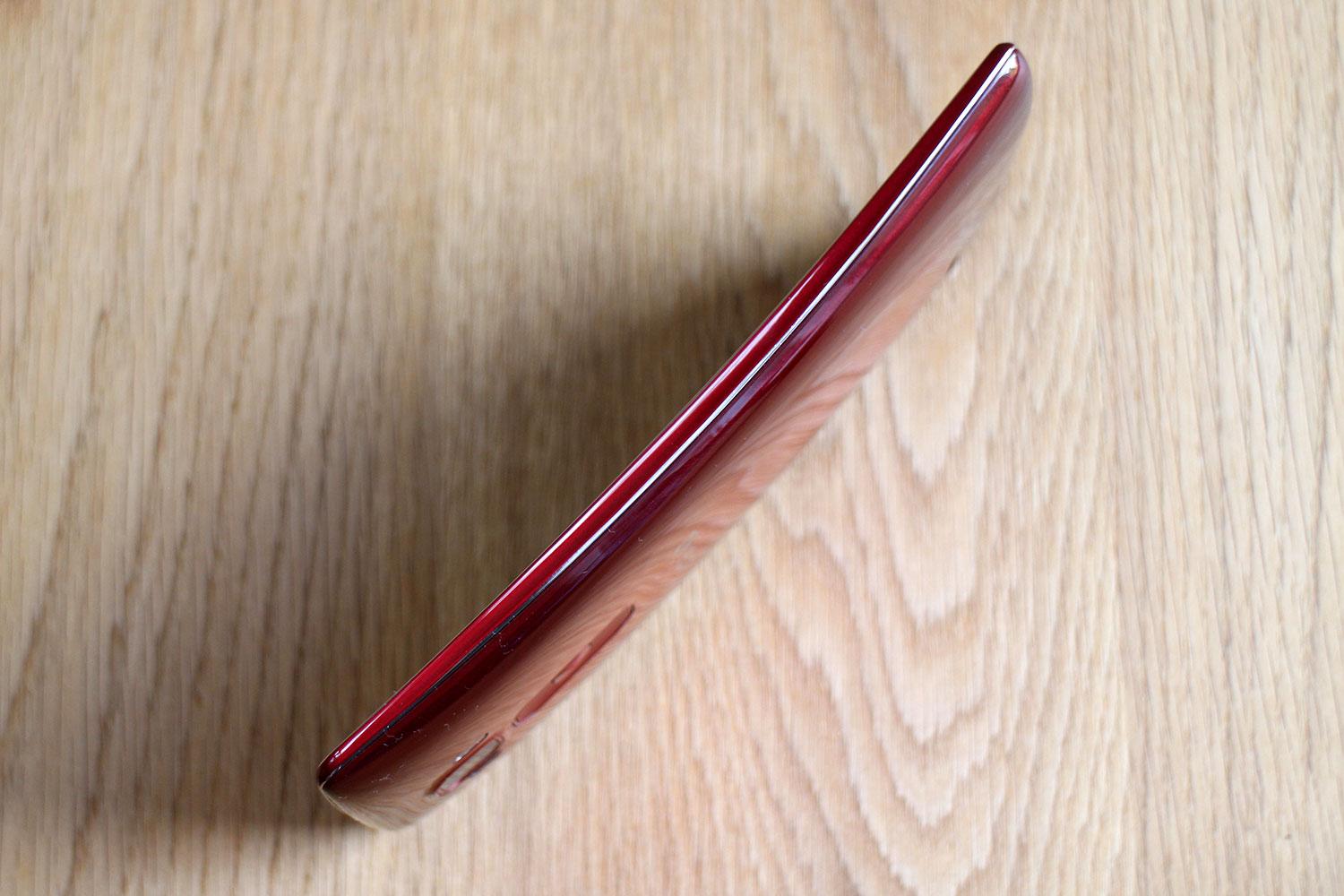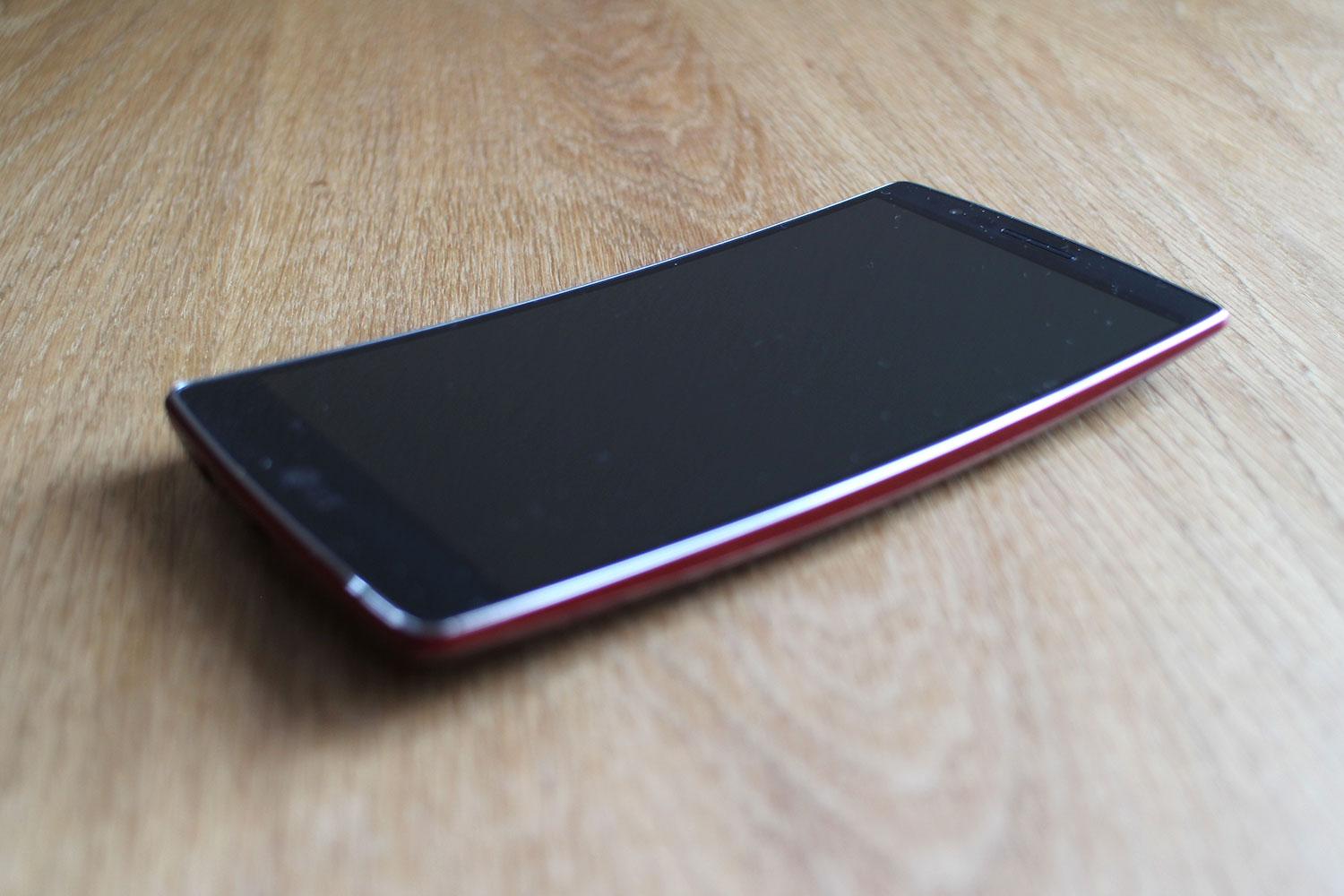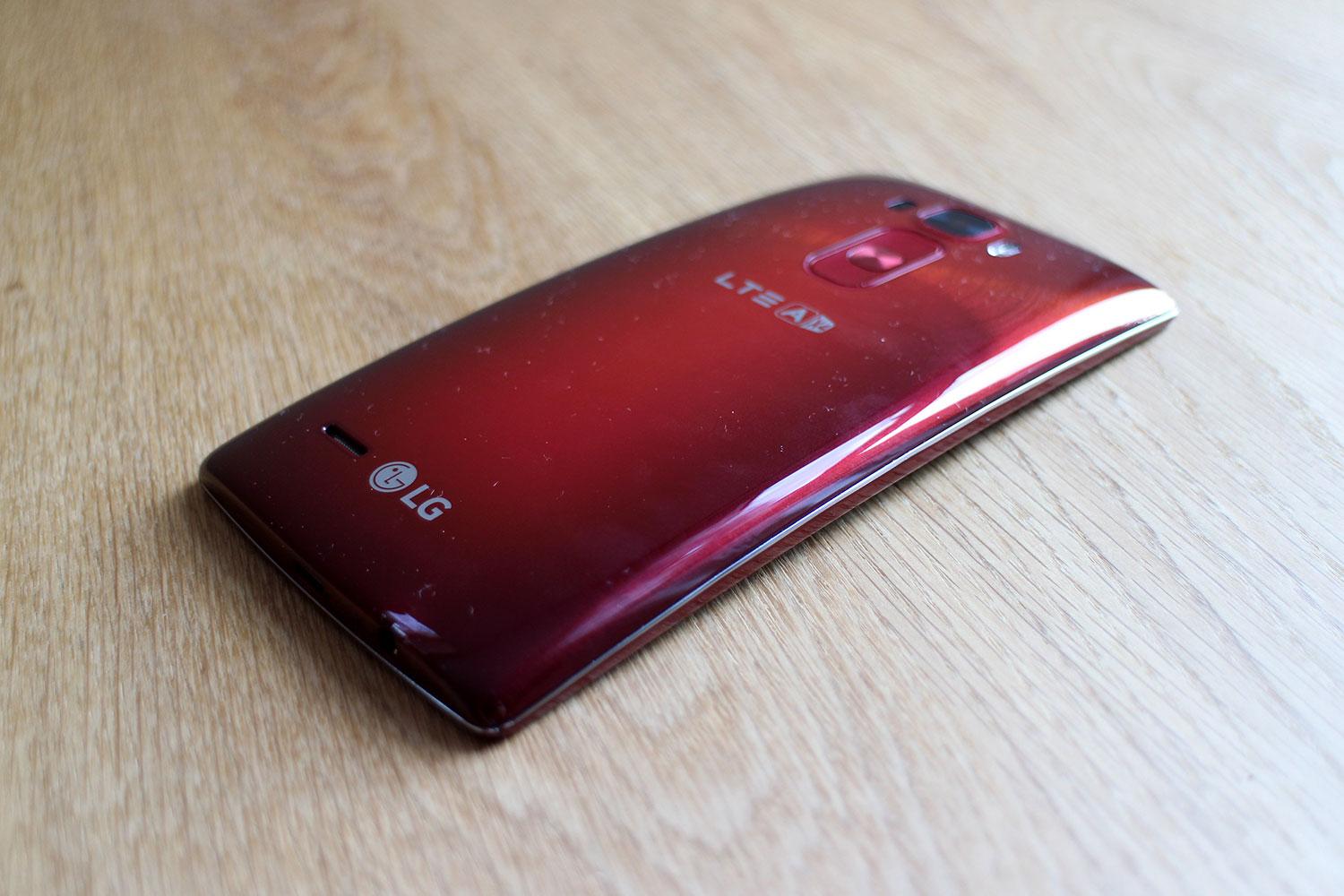“Curvaceous and capable, the LG G Flex2 should be a top choice for anyone who values style in their phone.”
- Stunning curved body
- High degree of durability
- Excellent camera
- Ergonomically impressive
- Surprisingly compact body
- Software is laggy at times
- Underwhelming performance
- Phone gets a little hot, at times
- Battery life is adequate
Curved shapes are evocative, attractive, tactile, and sometimes even sensual. The G Flex2 is LG’s second curved phone, and while the original stood out visually, it didn’t make our knees go all wobbly when it came to processing power. On paper, the G Flex2 fixes all the complaints about the G Flex. Let’s find out if the phone can live up to expectations this time around.
Phones don’t get better looking
The G Flex2 feature everyone comments on is the curved screen. It’s not a dramatic curve at just 23 degrees, but it’s noticeable from all angles, and it gives the phone a very individual look. Nobody will mistake this phone for anything else, certainly not an iPhone, and that’s a very welcome thing in today’s oblong block-obsessed phone world.
The G Flex2 cures complaints about the G Flex being all style and no substance
Is it only there for aesthetic reasons? Initially, I didn’t expect it to be anything other than a gimmick, but I was very wrong. The curved screen makes the phone tougher than those with flat screens, and it’s better equipped at absorbing shocks. It also places the microphone closer to your mouth; LG says voice calls are several decibels louder on a G Flex2 — and sure enough, everyone commented on how clear my voice was on the phone.
The real surprise came when using the phone each day. The G Flex2 may not be as massive as its predecessor, but it’s still big. The screen measures 5.5 inches, and the body is slightly larger than the LG G3. Yet the curved display made it easier to stretch a thumb across it, and the device is considerably more comfortable to hold and use with one hand than the G3. The curved screen made sense, something I didn’t really expect.
The surprises didn’t stop there either. Curved TV screens are supposed to offer a more immersive viewing experience, but I didn’t think that would translate down to something with a screen a tenth of the size of these impressive televisions. Here’s the shocker: it does. While watching streaming video, it did have a different feel to it. I’m not sure I’d call it immersive exactly, but it was definitely more cinematic. It made me want to go out and buy a curved TV.
Flat screen phones felt and looked old, boring, and a bit cumbersome after using the G Flex2 for a few days.
It’s tougher than your normal phone
The G Flex2 lived in my pocket, on the table at coffee shops, in the center console of the car, and rattling around in my bag. For me, this was treating it badly, but for many people this is what phones must put up with on an everyday basis. The G Flex2 is promoted as being a tough old bird. LG has given the Gorilla Glass 3 screen a special coating to make it 20 percent more durable, and the rear panel has a next generation self-healing coating on it, plus the curved body’s supposed to be better at surviving the stresses of normal life.
Two weeks in, and the phone still looks like new. Not a scratch on the back, and nothing on the screen. This is what the self-healing coating is supposed to do — get rid of the tiny scuffs phones pick up in pockets, or on tables. If you attack it with a key or a knife, the coating will break and you’ll be left with a nasty scar. Interestingly, the curve makes the phone more comfortable to store in your pocket than a flat phone.
It’s still early days for life with the G Flex2, and we’ll be updating this section over the coming weeks to see whether it continues looking its best.
Updated on 4-10-2015 by Andy Boxall: Added in an update on the G Flex2’s condition after several weeks.
I’ve had the phone in my pocket or bag for about a month, and the back panel has picked up a couple of deeper scratches that go beyond the self-healing coating, meaning they haven’t filled in. Worse, one scratch has turned into a scar, where the covering around it has started to peel away. It’s not pretty, and it’s almost like there’s an annoying sticky plastic covering that’s not been removed from the back. It makes me wish I’d stored the phone in a case.
This proves that self-healing though the G Flex2’s rear panel may be, it’s far from indestructible. We’d recommend being just as careful with the phone as you would any other expensive device.
An awesome camera
The LG G3 has an awesome camera. The G Flex2 has essentially the same setup. The sensor has 13 megapixels, there’s a dual-LED flash, the laser-autofocus sensor, and OIS+ functionality. LG has given the software a few tweaks, but could it really improve on the G3?
The laser-autofocus is ever-so slightly faster to pinpoint its target, but it’s noticeable only when the two are placed next to each other. Comparing pictures taken with the G3 and the G Flex2 does reveal a few differences.

DT’s camera editor, Les Shu, examined the image of the church taken with both phones. “It’s clear the G Flex2 is brighter,” he said. “It’s a bit overblown between the tree and the steeple, and colors on the G3 are a bit darker.”
“Viewing them on a 27-inch monitor, I like the G3 better,” he continued. “The G3 seems to have a more natural coloring, but the details like the cracks in the tree trunk and the stonework seem better on the G Flex.” However, playing around with the exposure levels in a photo-editing program cured the issues with both images. “The weird thing is, the G Flex2 produces a better photo for sharing, but the G3’s pictures look better on a larger scale.” he concluded.
One of the G3’s party tricks was its gesture control system for taking selfies, which involved clenching a fist in front of the camera. It was clever, but didn’t always work. It’s vastly improved on the G Flex2, and the selfie cam is able to track an open hand around the screen, almost regardless of the lighting conditions. When you’ve snapped a selfie, bringing the phone close to your face shows the picture you’ve just taken, a feature optimized for those who use selfie sticks.
The G Flex2 shares the same excellent editing features as the G3. If you spend a little time with it, you can create some truly stunning pictures using the G Flex2 using only the standard software. Coupled with UHD video recording, a panorama mode, a voice-activated shutter control, and the fun-but-pointless dual-cam setting, the G Flex2 equals the G3 at taking great pictures.
There’s also a side note to all this tech talk. In a similar way to the G3, I enjoy using the G Flex2’s camera. It’s fast, simple, and I get compliments about the shots I take with both phones, more than any other, actually. Sometimes, that’s all there is to making a great camera phone.
It was laggy, but a software fix has come!
The G Flex2 ticks all the right boxes until we get to software. And although it doesn’t get a cross, it doesn’t get our tick of confidence just yet. When I used the phone at CES, it was slick and speedy, but an update applied to international versions just before the phone arrived for review has altered its performance.
Latest firmware update removes all previous concerns over the performance
It’s not slow, and gaming performance is unaffected, but due to the update, navigation is an issue. It’s sluggish, but it shouldn’t be. The G Flex2 has a 2.0GHz Snapdragon 810 processor and 2GB of RAM. There are frustrating pauses when opening some apps, widgets take seconds to show up after unlocking, and taps are unresponsive if the phone is busy with other things at the time. It doesn’t always happen, but it does happen. LG is aware of the problem, and we’re been told that a software update fixing the phone will come out very soon. A small update has already been applied, and certainly helped, but didn’t cure the issues.
In the meantime, here are a few benchmarks, which prove the fiery potential of a properly optimized G Flex2. Quadrant gave us 27,900, Geekbench 3’s multi score was 4190, while 3DMark gave a score of 23280. The latter is only bettered by hardware like the Nvidia Shield and Microsoft Surface Pro 3.
Android 5.0.1 is installed, and LG’s own UI has been given a Material Design overhaul. It looks great, and isn’t intrusive at all. As an added bonus, our phone came with very few pre-installed apps. Outside of LG’s own email, memo, and remote apps; there is a demo for Box (a storage app) and McAfee Security app.
Updated on 4-10-2015 by Andy Boxall: Added in new comments following major software update.
LG is in the process of pushing a major firmware update to the G Flex2, and ours arrived on April 4. Up until this point, the phone displayed some lag, and the severity depended on the device. For example, some phones were seeing delays of between five and 10 seconds, while mine was nowhere near as badly affected, with a 2 second delay at most. Apps were getting confused, hanging, crashing, and ruining the experience.
An update called “V10h-MAR24-2015” transformed my device. The lag has been eradicated, apps open when asked, and a few days into using the newly reinvigorated phone, there’s no instability. The Bluetooth connection to my Android Wear smartwatch also seems more stable. One app which caused the phone to get incredibly hot before the new software was Mikupicture, the AR photo app. Trying it again still caused the G Flex2 to get warm, but only reaching 39 degrees Celsius, rather than the 45-plus I recorded previously.
Interestingly, re-running the benchmarks produced different results — and only the Geekbench 3 multi-core score was lower at 4065. The Quadrant test measured a massive 28,000, and 3D Mark returned 23,918. The March firmware update removes all previous concerns over the performance, and the phone is even smoother than I remember at CES this past January.
One of the big questions ahead of using the G Flex2 was heat generation. After all, the Snapdragon 810 had some bad press leading up to launch. The answer is no, it doesn’t get too hot to touch, but it can get warm. Before the first software update was applied, using the augmented reality photo app Mikupicture saw temperatures really rise. It sits idle around 28 to 31 degrees, but rocketed to over 45 degrees Celsius (113 degrees Fahrenheit). The app now runs warmer than usual, but that’s all. So, yes. It got a little hot.
LG’s excellent KnockOn feature is still present, where a double tap on the lock screen wakes up the display, plus there’s the new Glance View feature. Here, a downward swipe on the lock screen quickly shows the clock and the notification bar at the top of the screen. The dawn-light effect is very cool, but I didn’t find myself using it very often. Mainly because the combination of KnockOn and Android Lollipop’s lock screen notifications gave me more information in almost the same amount of time.
Battery is adequate
Finally, we come to battery performance. The Flex2 has a non-removable 3,000mAh cell inside, and after a week of it settling into life and under normal usage, it returned about 24 hours use before needing a recharge.
In the real world, if you turn the phone off overnight, it’s about a day and a half at the most. It’s not terrible, but I did expect a little more, particularly because the phone doesn’t have the Quad HD screen found on the G3 — but the usage time is very similar.
Updated on 4-10-2015 by Andy Boxall: Added in comments on the phone’s battery life after a month.
After a month, the battery settled down into everyday use, and a 24-hours average is achievable. Even connecting to Bluetooth headphones, playing games, or listening to music for extended periods of time didn’t alter this figure, indicating power management is excellent. On day trips I’d carry a battery pack around, but most of the time, I’d end up needing it to charge my iPhone and not the G Flex2.
Bluetooth connectivity was flaky before the first update, but has improved. Connected to the G Watch R all day didn’t seem to affect battery life, and notifications arrived promptly. Our review phone only had 4G bands suitable for Korea, but worked perfectly on 3G, and reception was excellent.
Style without the downsides
The G Flex2 is a striking phone, and that subtle but noticeable curve makes it unmistakable. It’s more comfortable to hold than other, flat phones, and not only does it fit better in your pocket, its durability means it won’t be a scratched up mess after five minutes. The camera is great; the display is bright and colorful; and the battery isn’t an embarrassment. However, the software needs some work to make the most of the phone’s performance potential.
The DT Accessory Pack
Up your game and the get the most out of your gear with the following extras, hand-picked by our editors:
LG Quick Circle Folio Case for the G Flex2 ($60)
LG G Watch R ($310)
Mophie Powerstation ($80)
It’s a big improvement over the original, and aside from the screen resolution, every bit the LG G3’s equal. It’s got some stiff competition coming up in the Galaxy S6 and the HTC One M9, but neither of those have a curved body, and that’s the number one reason you should take a good look at the G Flex2 before choosing your next Android phone partner.
Highs
- Stunning curved body
- High degree of durability
- Excellent camera
- Ergonomically impressive
- Surprisingly compact body
Lows
- Software is laggy at times
- Underwhelming performance
- Phone gets a little hot, at times
- Battery life is adequate

















